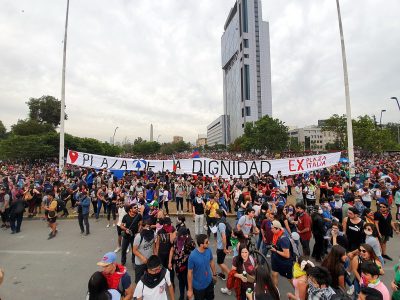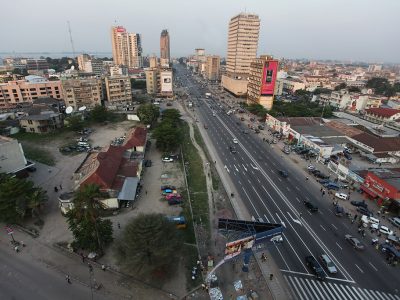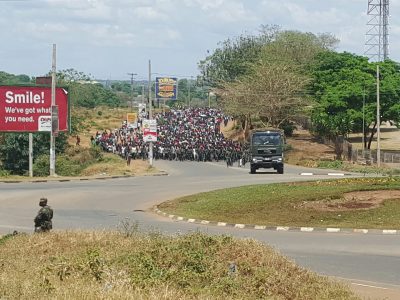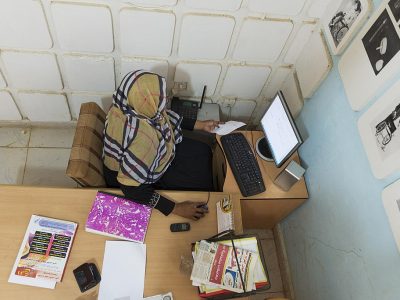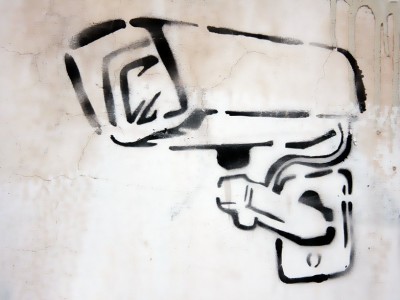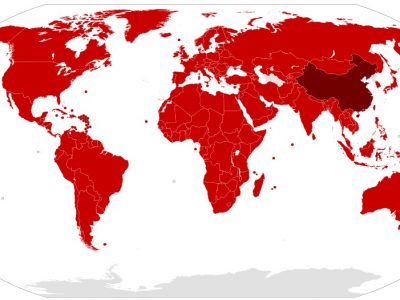Latest posts by Advox
Policing the digital frontiers: Is India weaponizing technology to silence civil society?
In the word's largest democracy, the targeting of human rights defenders through spyware poses a threat to fundamental rights and freedoms, including freedom of expression and privacy.
Holocaust denial should be considered hate speech, survivors demand of Facebook
Hate speech is a criminal offense in most European countries that experienced the horrors of World War II, but the US does not have such laws at the national level.
Lebanon protests: Authorities prey on digital spaces to silence criticism
While social media and WhatsApp have been extensively leveraged by demonstrators to organize, document, and sprawl the protest, Lebanese authorities have resorted to identifying and persecuting dissidents.
Social media in Latin America: Caught between a rock and a hard place
As researchers, it is very difficult to know how, or even if, high profile global announcements are actually impacting users in Latin America.
Al Jazeera Balkans crew attacked at a right-wing opposition party protest in Skopje
Assaulted female journalist insisted on reporting the incident to the police and tracking the attacker, as a way to stand up to a culture of impunity for violence against journalists.
A Chinese city withdraws ‘civility code’ following online criticism
Suzhou – a Chinese city near Shanghai – launched a “civility code” in early September to rank citizens’ civility. As negative comments flooded in, the city called an end to the testing.
In DR Congo, will new legislation protect citizens’ digital rights?
In Democratic Republic of Congo, a citizen movement is underway to reclaim digital rights that have been violated for years under a vague and outdated legislation.
Why Malawi urgently needs a data protection law
In January 2018, the Malawi Communications Regulatory Authority (MACRA) announced a mandatory national sim card registration exercise tied to the national ID process.
Moderating harmful content online in Sudan: Policies and measures
In Sudan, social media platforms struggle to enforce guidelines and rules regarding content deemed harmful such as hate speech and disinformation.
We made the largest Mexican telecommunications operator stop blocking secure internet
Group effort, research, perseverance, and Global Voices' journalism played a key role
Surveillance in Lebanon: A crisis of privacy
Intrusions on citizens’ privacy in Lebanon are pervasive and often conducted without proper judicial oversight.
Why women’s rights and digital rights go hand-in-hand on Namibian Twitter
In Nambia, a Twitter campaign to legalize abortion drew waves of attacks against feminist activists, but as a result, parliament has agreed to discuss Nambia's outdated abortion laws.
An earthquake shook Tanzania. A new law prohibits citizens from speaking about it online.
Revised online content regulations in Tanzania prohibit talking about pandemics, natural disasters or politics without government approval. Is it possible to control essential online conversations? If so, at what cost?
Building safer online spaces in Myanmar
“Facebook was, and continues to be, the favored tool for disseminating hate speech and misinformation against the Rohingya people, Muslims in general, and other marginalized communities.”
COVID-19 and China's information control policy
China’s strategy to control information and its consequences has become a global concern.
The chilling tale of mass surveillance and spying in Rwanda
Rwanda justifies its tight control over media freedom, suppression of dissent, and hostility toward opposition as matters of national unity and security.
In the age of misinformation, who holds the power to categorize the ‘truth'?
Over time, the categorization of information can result in the dominance of a single world view, making platforms like Facebook, Twitter and Google the central arbiters of truth.
Moderate globally, impact locally: A series on content moderation in the Global South
''Even as the platforms have grown and spread around the world, the center of gravity of these debates continues to revolve around D.C. and San Francisco.''
Digital rights remain under threat in Malawi despite historic win for democracy
Will the change in the country's leadership bring about meaningful changes to ensure that Malawians enjoy human rights in the digital space?
New Facebook Oversight Board must remove content of notorious Sudan militia
“Despite the harrowing violations, the RSF maintains a presence on social media, most notably Facebook, which has been the main platform for this militia to spread its messages …”




